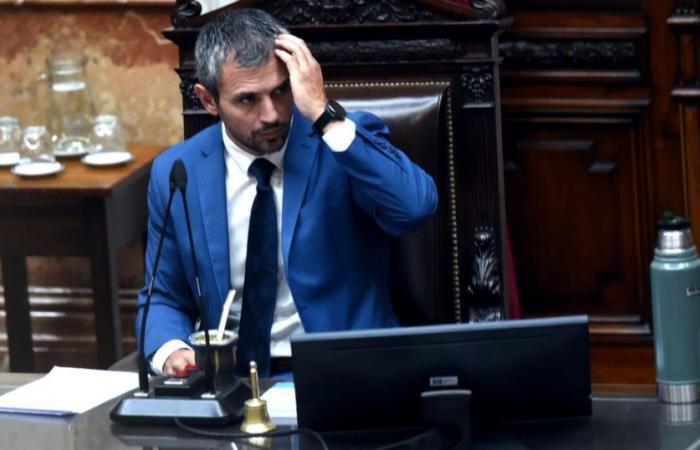Another official concern is the number to approve the tax. The Constitution indicates that it can insist with an absolute majority of those present – which would be like the simple one – but there is a discussion about whether, because it is a tax issue, it does not need half plus one of the premises.
Among those who support the bill, they say that this is not the case because it is an existing tax. To avoid this debate, the government wants to have 129 votes. That is three fewer than the votes obtained on April 30 to approve the Income Tax chapter, which was later rejected in the Senate.
Called for Profits
To reach the desired 129, the government is putting pressure on Peronist governors, who benefit from an increase in co-participation, and on the landless radicals, who met with them on Wednesday. Guillermo Francos. They complain that the leaders of their provinces do not contribute votes and will benefit from the tax. In the bloc they say that this meeting did not bring positions together, as the Chief of Staff intended.
In the middle of the session, the ruling party’s negotiators made efforts to add votes. As he knew Letter pthere were many calls to UCR representatives from the Speaker of the House, Martin Menem; and the head of La Libertad Avanza, Gabriel Bornoroni.
In that block there are four members who supported Ganancias in April and now resist approving it again: Karina Banfi (Buenos Aires), Gabriela Browning de Koning (Cordova), Pablo Cervi (Neuquén) and Roxana Reyes (Santa Cruz). They were part of the delegation that visited Francos this Wednesday.
As explained Letter pCervi, Reyes and Banfi do not want to favor their governors, who will receive funds from the increase in income tax payers and will not contribute votes. Browning de Koning demands that the mayors of Córdoba be rewarded for their support. The ruling party is asking for a vote in favor, although the rebels prefer abstention. The UCR could not get any of the eight votes against it in April to revise their position.
All against Jalil
In Union for the Homeland there is a fierce internal conflict over the decision of the governor of Catamarca, Raul Jalilto ask his four representatives of the block to help approve the chapter on Profits. In April, the president obtained a vote in favor (Sebastian Noblega) and three abstentions, including that of Silvana Ginocchiothe president’s wife.
As explained Letter pAt the block meeting this Wednesday, Ginocchio announced that together with his countrymen he will help sanction Profits.
This Thursday morning there was another meeting of the UP caucus, led by German Martinez. The referents decided to vote against and waited for a reaction from Catamarca that did not come. Sources from that province confirmed to Letter p Jalil instructed to vote in favor and, in that case, abstentions and affirmations could be distributed so as not to create tension with the bench. The governor could ask for at least two votes in favor, to show Francos that he has added up.
As a gesture to UP, the Catamarca group would not support the omnibus law, an option that they were considering until Wednesday, to ratify their support for the Registry of Incentives for Large Investments (RIGI). For this ruling party, the votes are more than enough.
The Government’s rush was noted early on, when Menem asked in a message Twitter to the governor of La Rioja, Ricardo Quintela, to help him with votes to approve Profits, so as not to lose an extra $75 billion through co-participation. Francos summoned him this Friday to reactivate public works. He would not be the only Peronist leader whose phone rang at this time. They are all necessary.
#Argentina






